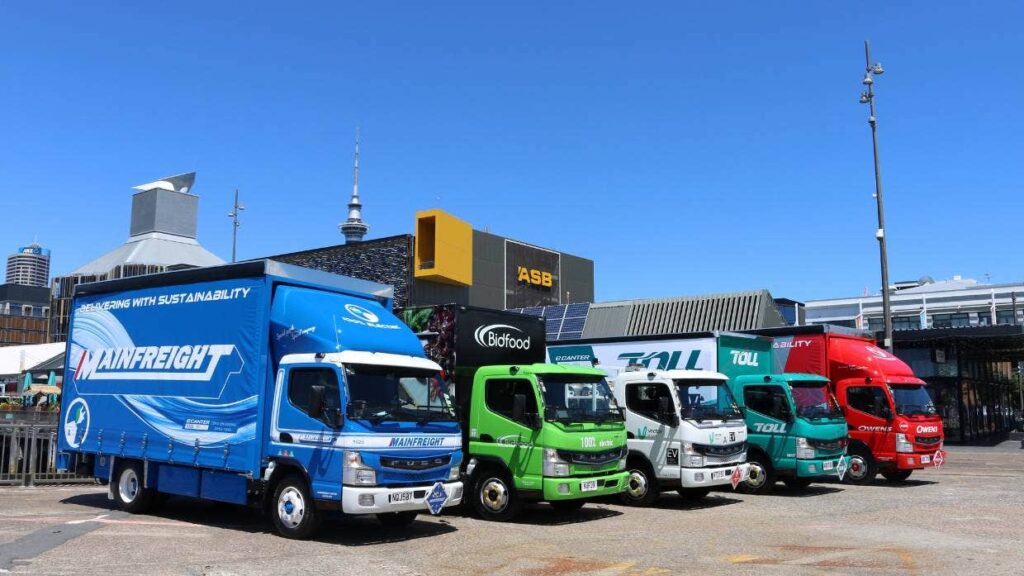Our sector plays a critical role in shaping New Zealand’s environmental future. With transport accounting for 17.5% of the nation’s total emissions, we are acutely aware of our responsibility in the collective effort to reduce carbon output. As the economy begins to rebound, however, our sector’s emissions are likely to increase unless we take proactive steps to change the profile of our heavy diesel fleet.
Looking ahead, the future of New Zealand’s heavy fleet is likely to involve green hydrogen trucks for long-haul transport and battery electric commercial vehicles (BECVs) for last-mile deliveries. Green hydrogen trucks, with their extended range and quick refuelling capabilities, are ideal for transporting goods over long distances, such as appliances and store goods. On the other hand, BECVs are well-suited for urban environments where they efficiently handle shorter trips, including the delivery of fresh groceries and other perishable items. Both technologies will play crucial roles in achieving a more sustainable transport sector, addressing diverse needs within our supply chain while reducing overall emissions.
To effectively decarbonise transport, we must expand our focus beyond merely transitioning to cleaner vehicles. NRC believes increasing productivity should be added to the Government’s list of solutions. By moving more goods with fewer resources, we lower emissions and drive economic growth. This dual benefit is essential in an era where cost pressures and environmental concerns are equally urgent.
Enhancing productivity is also key to overcoming the financial barriers associated with adopting heavy electric and hydrogen trucks. The initial capital costs of these vehicles, combined with other disincentives, can be daunting. However, by improving the efficiency of our fleet, we can offset these costs and make the transition more viable for fleet owners.
A critical area where productivity gains can be made is in the review of the Vehicle Dimension and Mass Rule. As we consider the changes necessary to accommodate battery electric vehicles (BEVs) and hydrogen trucks, it’s crucial we also look at how we can lift the overall productivity of the fleet. Adjusting axle mass limits for these innovative technologies will allow more efficient transport operations, reducing the number of trips required and, consequently, the overall emissions.
However, technology alone won’t solve the problem. Currently, there is a significant gap in the charging infrastructure for heavy trucks, particularly those towing trailers. Without a robust network of rapid charging stations, the adoption of electric heavy vehicles will be severely limited. Many of our members are already struggling to secure enough electricity to charge even a single truck, making the expectation that heavy freight vehicles will charge solely at their depots unrealistic. A stronger commitment from the Government to support the rollout of heavy vehicle charging infrastructure is essential.
We also believe strengthening the Emissions Trading Scheme (ETS) is crucial to creating a credible market for carbon which, in turn, will provide the certainty needed to incentivise the transition to lower-emission vehicles. However, NRC cautions against raising the price of carbon before lower-emitting technologies are widely available. Any increase in costs for our sector will ultimately be passed on to consumers, potentially stalling the transition rather than accelerating it.
The Government’s provision of a $30 million grant scheme for hybrid or zero-emissions heavy vehicles is a positive step that will help early adopters overcome upfront cost barriers. This will accelerate the uptake of these vehicles, allowing fleet owners to see low and zero-emission trucks operating in real-world conditions. By identifying and resolving the barriers to adoption, we can pave the way for a smoother transition for the entire sector.





